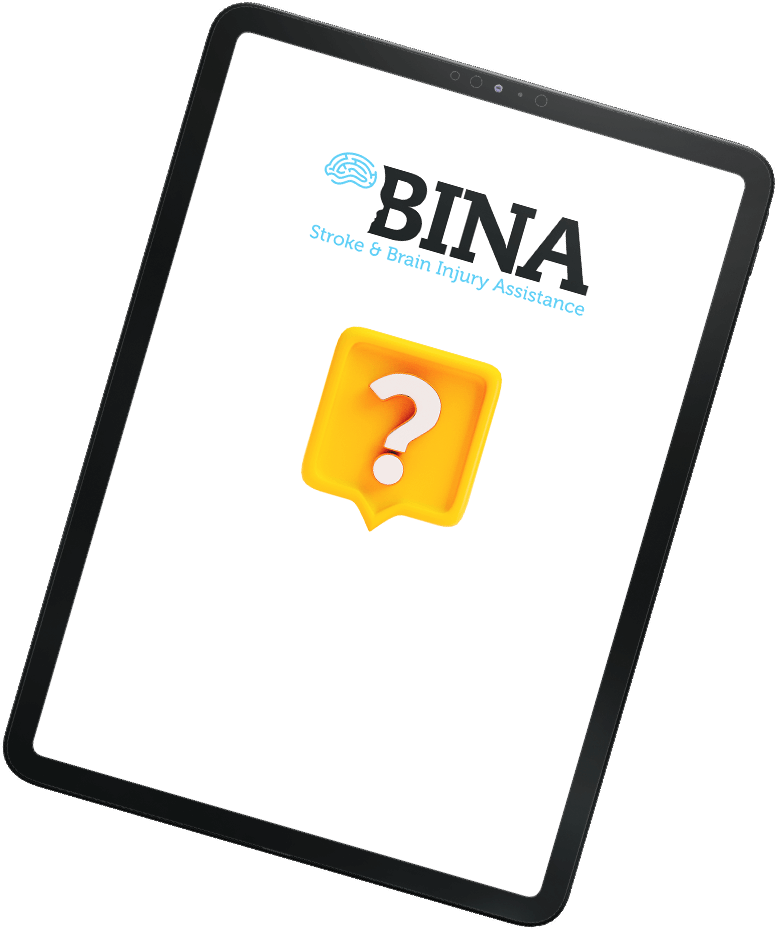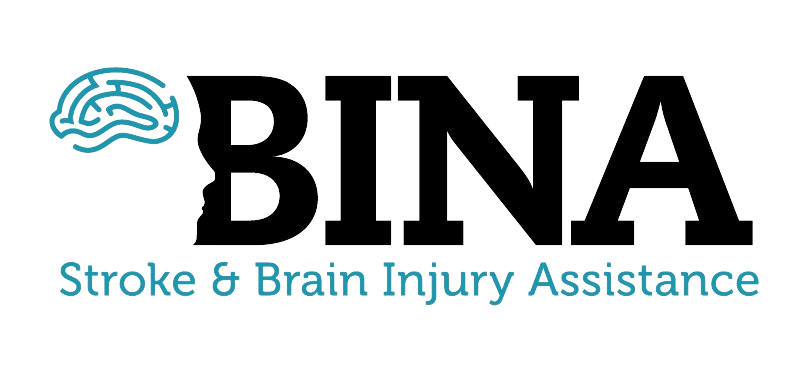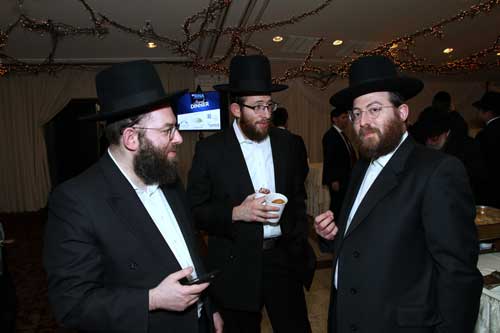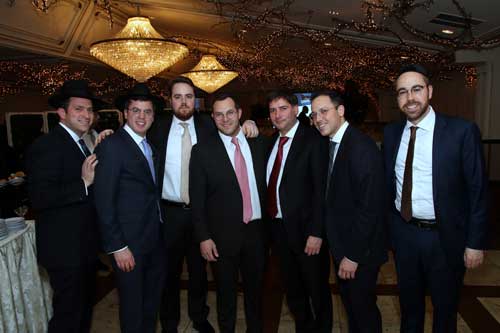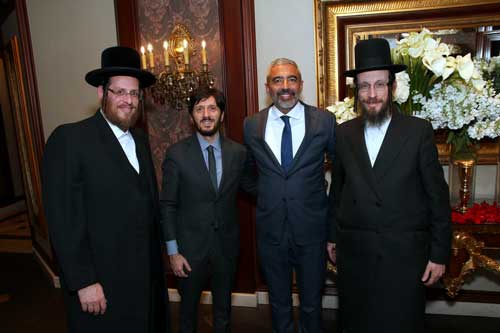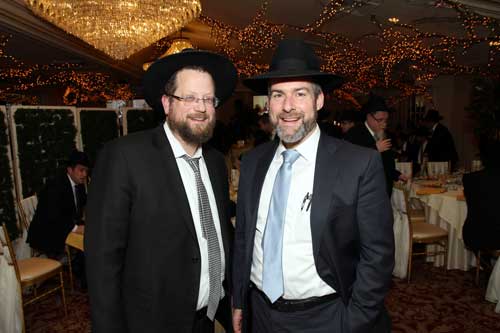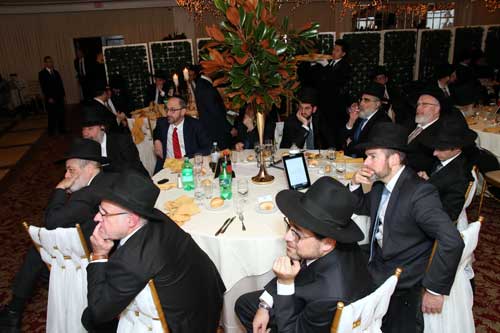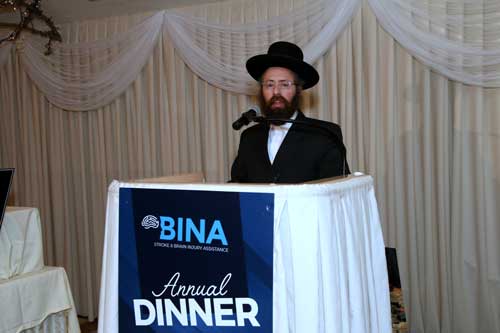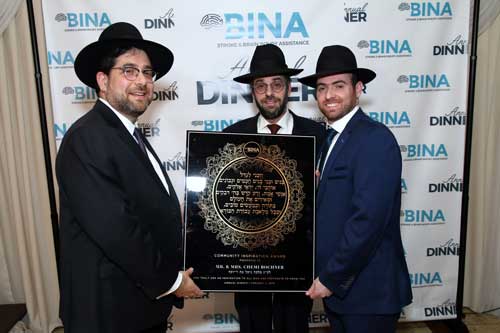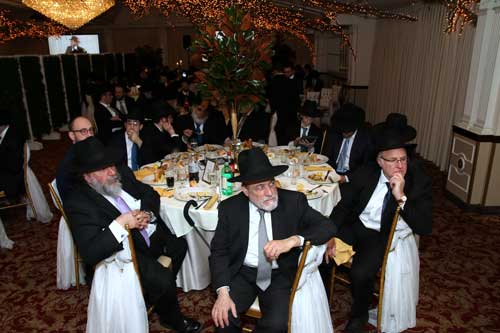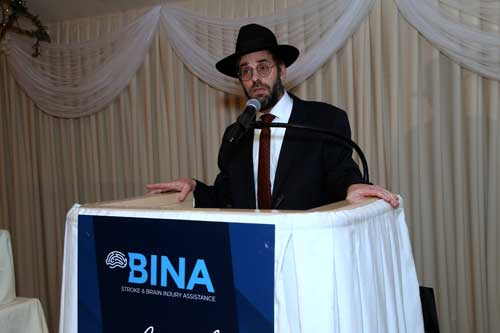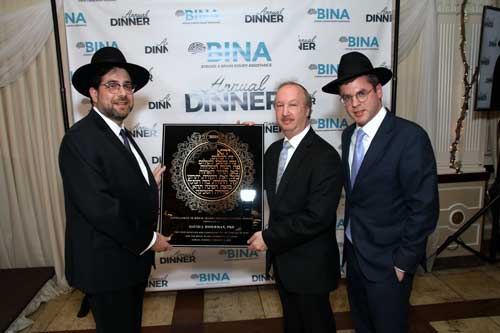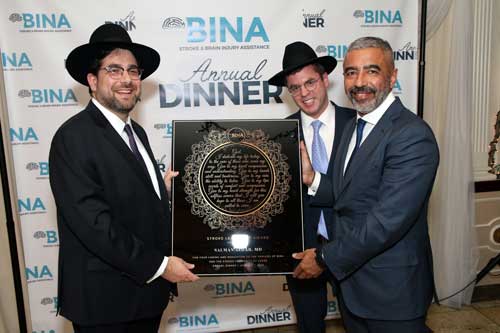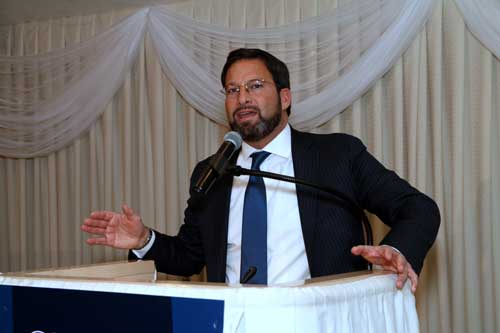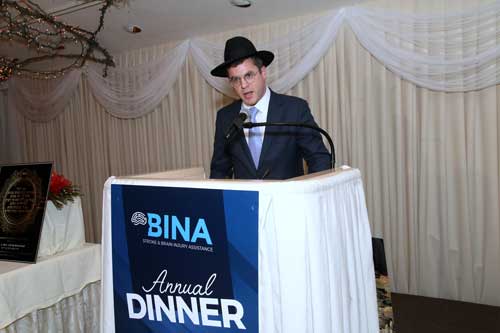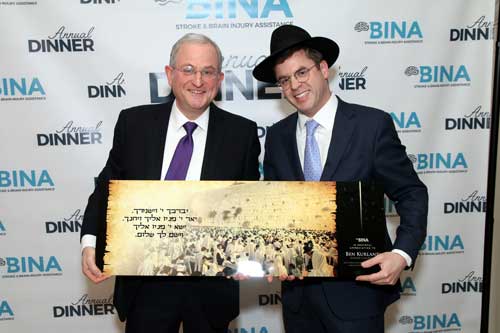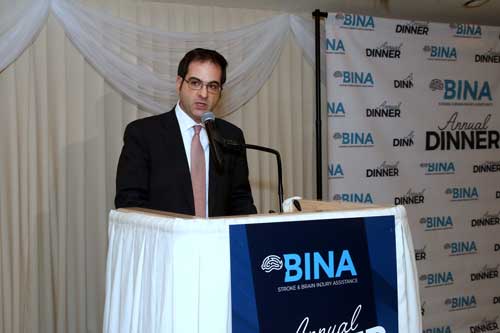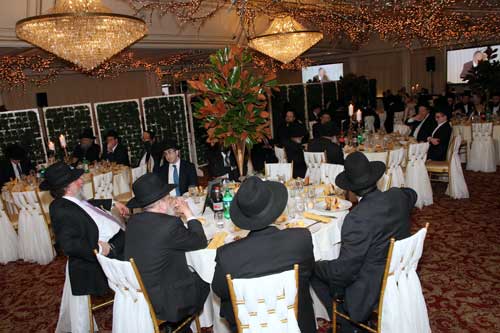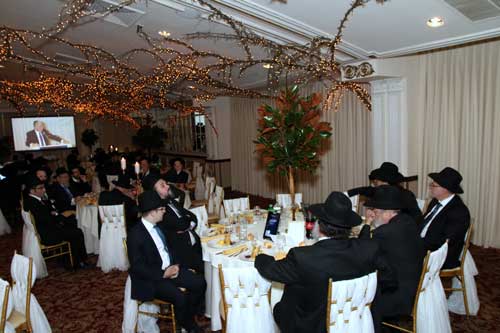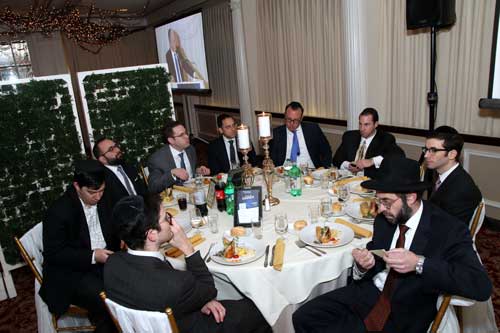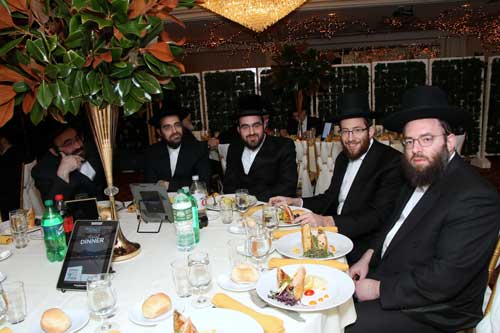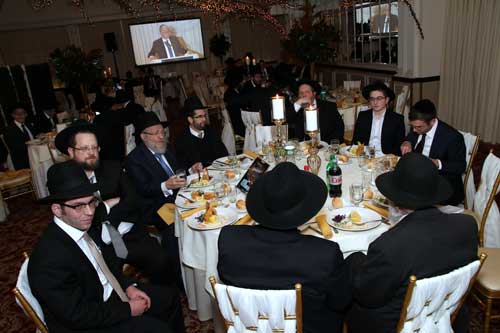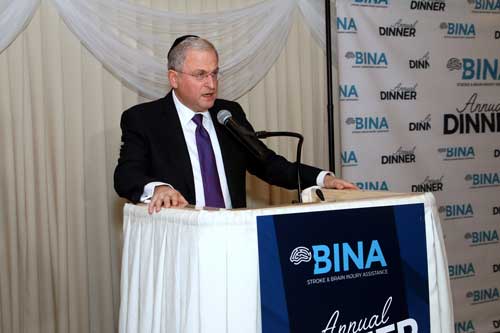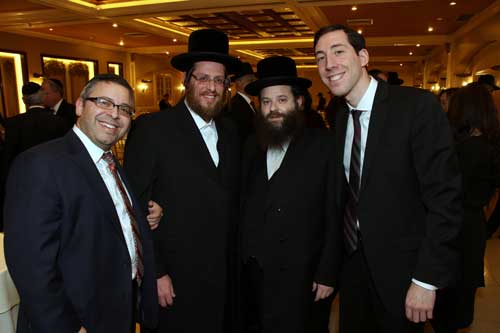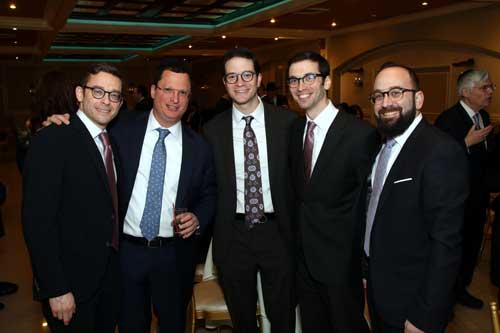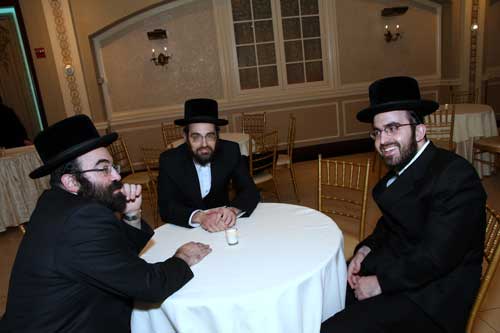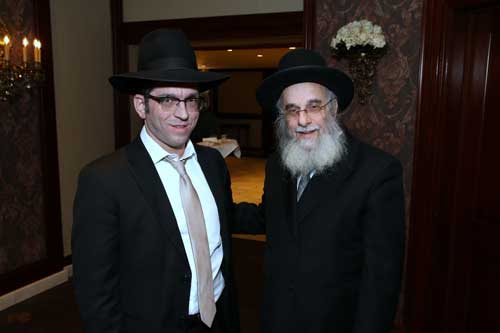BINA Dinner 2018

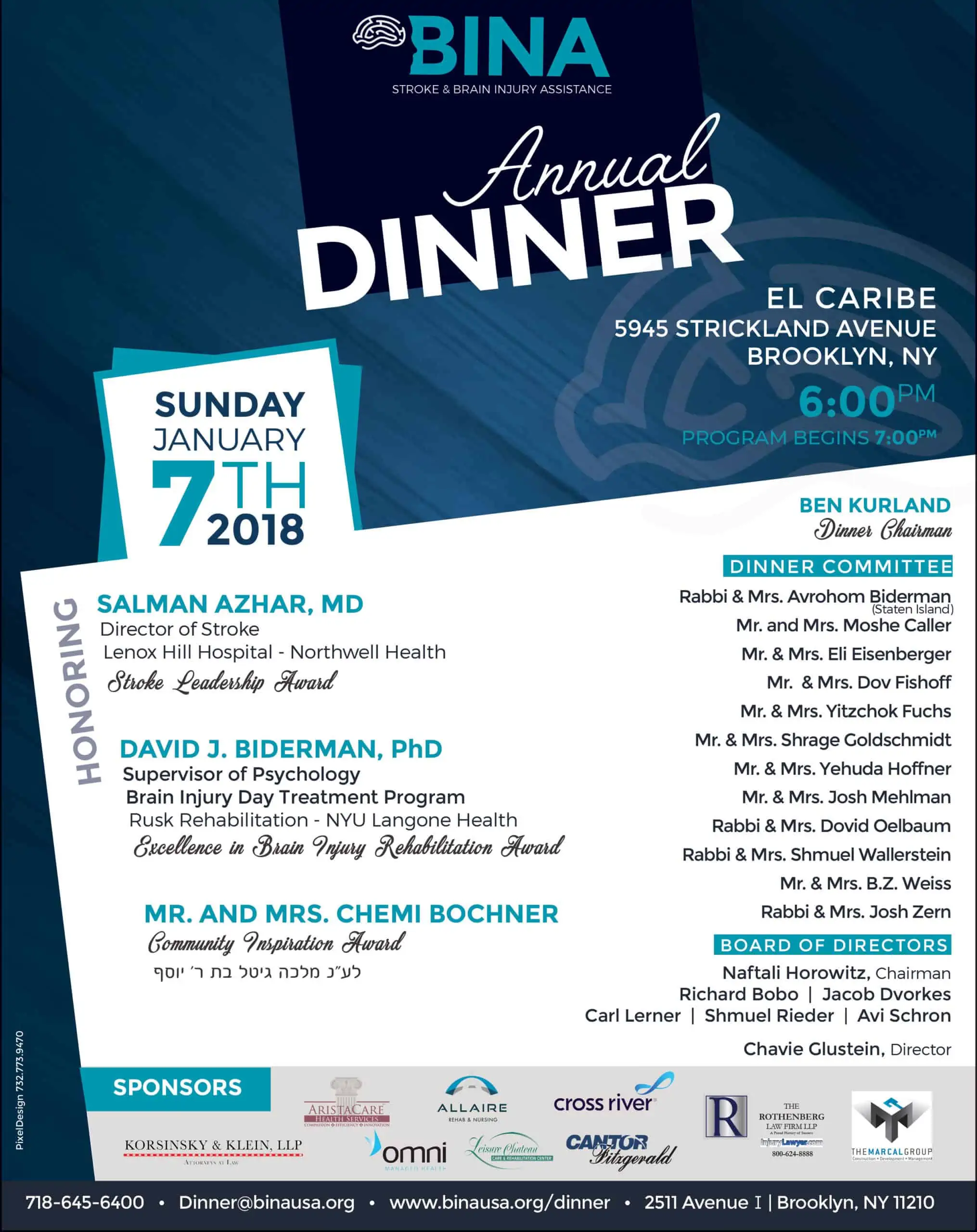
An overflow crowd filled the elegant El Caribe Country Club in Brooklyn last Sunday for the Annual Dinner of BINA Stroke and Brain Injury Assistance. Honored at the gala event were Dr. Salman Azhar, Director of Stroke at Lenox Hill Hospital, presented with the Stroke Leadership Award; Dr. David J. Biderman, Supervisor of Psychology at the Brain Injury Day Treatment Program at Rusk Rehabilitation, who received the Excellence in Brain Injury Rehabilitation Award; and Mr. and Mrs. Chemi Bochner, well-deserving recipients of the Community Inspiration Award.
The program was opened by Mr. B.Z. Weiss, who shared his personal thoughts as the parent of a teenage stroke survivor and stated that it is impossible to go through a stroke or traumatic brain injury on your own. BINA receives calls every day from frightened and concerned family member, he declared, and “you are here to make sure that someone is there to answer the call.”
Speaking for the first time at a community event, newly elected Councilman Kalman Yeger described BINA as an incredibly important organization, the only one of its kind, and praised them for “giving people who are trying to put their lives back together the ability to do that, to be self-sufficient again, to regain what they had before.”
Dinner Chairman Ben Kurland, CEO of the Allaire Group, was presented with a plaque in appreciation of his dedication to BINA and his work on behalf of brain injury survivors. Mr. Kurland asserted that everyone was there to pay tribute to an organization like none other, run by an individual who gives of herself 24/7, constantly asking “what can I do better?” Brain injury, he explained, does not always have a fairy tale ending, and BINA is there to say “we will be there for you and we will hold your hand every step of the way.”
Moshe Caller, member of the Dinner Committee, then spoke about a close family member and a dear friend who both experienced the upheaval and confusion of traumatic brain injury. He commended BINA for their humility and dedication and concluded with a plea to support BINA and provide the necessary resources to allow them to expand their reach.
The Stroke Leadership Award was presented by Elchanan Schwarz, Director of Crisis Intervention at BINA to Dr. Salman Azhar, whom he described as “a renowned expert on stroke treatment and rehabilitation whose caring and expertise has allowed his many grateful patients to recover their health and wellbeing following a stroke.”
The next award for “Excellence in Brain Injury Rehabilitation” was presented by Mr. Schwarz to Dr. David Biderman for his work in intensive neuropsychological rehabilitation. Dr. Biderman was praised for “go(ing) to the lengths that he does to help both patients and their families and ensure that they are understood and cared for properly.”
Rabbi Benzion Schiffenbauer, Rav of Khal Bnai Torah, began his remarks by asking why Moshe Rabbeinu was told to remove his shoes upon seeing the burning bush before being addressed by Hashem. Rav Yechiel Michel Stern explains that a leader must feel the pain of every single person, and therefore Moshe was told to walk on every pebble and stone in order to feel the pain of his people. Rabbi Schiffenbauer thanked Mrs. Glustein and BINA for feeling the pain of every individual who has experienced a brain injury.
Rabbi Schiffenbauer introduced Mr. and Mrs. Chemi Bochner, recipients of the Community Inspiration Award, as a couple who has truly inspired hundreds of individuals including family and friends, doctors and nurses, and other BINA families. They have shown the power of tefillah and the results of our tears, and, he affirmed, “You never gave up and you have given us all hope.”
The final speaker, Rabbi Yosef Paluch, spoke about his family’s personal journey in the aftermath of a stroke and thanked BINA for guiding him step by step along the way. He appealed to the crowd to help BINA just as his friends have helped him, declaring that “BINA has 3,000 families and needs friends to ensure their success. Please be a friend to BINA.”
The evening concluded with a moving video which portrayed the turmoil and difficulty experienced by families in the aftermath of a stroke or brain injury.
Do You Have A Question?
